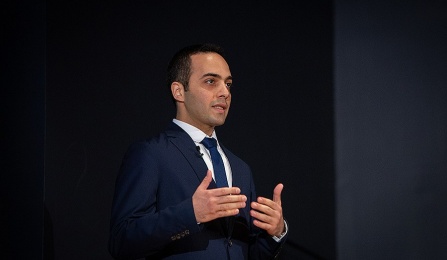
CSE Remote Exam Proctoring
I am a faculty in the Computer Science and Engineering department, and I wanted to share my experience on exam proctoring, as it has turned out well even for large classes I teach.
Time-Lapse Monitoring
I suggest using time-lapse for monitoring. Students take recordings of "themselves and their screen", using their phone, and upload it shortly after the exam.
They can ID themselves and show scrap papers to the camera before and after the exam.
It could be video recording for short quizzes, but for longer exams the file size will be huge so time laps is more reasonable.
Nothing is perfect, but time-lapse has several advantages over Lockdown, respondus, live zoom, and video recording:
- It does not require a webcam, [almost] everyone has a phone.
- It captures their desk/second/screen/etc and prevents them from using other resources, virtual machines or computers.
- No need to install app on the computer (security/policy/concern)
- It does not require students to be live/have high bandwidth internet access during the exam.
- Its interruption won't affect the exam submission itself.
- It is stored for future review, however the output size is way less than a video recording.
- It does not capture audio (where students have concerns over background voices/sounds), (One may consider this a disadvantage, but it has been effective.)
Instructions
Here is a tutorial I made, which is helpful for faculties and students. There is an example at the end of the video which shows what the setup should look like.
For 1 fps capture, 30 fps render, high quality, it turns every hour of exam to 2 minutes, and ~130MB. You can change the settings accordingly.
Here is an example I made with a very short quiz:
Faculty members can ask students to keep an eye on these items:
- Fix your phone/camera so it does not move or fall during capture (e.g. due to shaking of the desk).
- Put your phones on airplane mode to avoid interruption of the recording due to a message/call or vibration
- Storage needed for this is not huge, but better estimate it beforehand, with a very long time lapse trial.
- Clear the lens of the camera (screen and lights get blurry).
- You may check once or twice during the exam if the recording hasn’t interrupted for any reason.
- If you have multiple screens, please turn them off (if you use the secondary, minimize all the apps in your primary)
- Make sure the contents of your screen is visible in the image (frame/angle/lighting/glare/etc.)
- ID yourself at the start, and try to stay (at least partially) within the frame
- Show the scrap papers to the camera before you start.
- Make sure your phone is charged and in airplane mode.
- Run a trial, look at the output and be the judge.
It has been practically effective even in a large class.